- Why Don’t You Love Me?
- Drawn & Quarterly (2023)
At first glance, the bleakness on display in the new graphic novel Why Don’t You Love Me? is almost too much to take.
The premise itself is pretty grim: a middle-aged couple with two young children trying to make it through a succession of dreary days and long dark nights. Things are not looking good for Claire and her partner Mark. In the grips of what looks to be a crippling depression, Claire can barely remember the names of her kids, and has little interest in doing anything other than watching crappy television shows, drinking wine and smoking.
Meanwhile Mark can’t seem to recall how to do his job at a generic web management company. Luckily, his younger colleague is there to pick up the slack. As the pair stumble and fumble through their days, ordering takeaway pizza and Chinese food every night, they fail at even the most basic demands of life. It’s easy to feel a mite frustrated. What is with these two? Why can’t they just get it together? The joy of the story is figuring out exactly why they can’t.
British cartoonist Paul B. Rainey has fashioned a startling narrative that speaks strangely to recent pandemic experiences of isolation and parenting young children. The book is also infused with something far more profound, even revelatory. Without giving too much away, the mysteries of love, the unpredictability of the world and the promise of redemption are all at play.
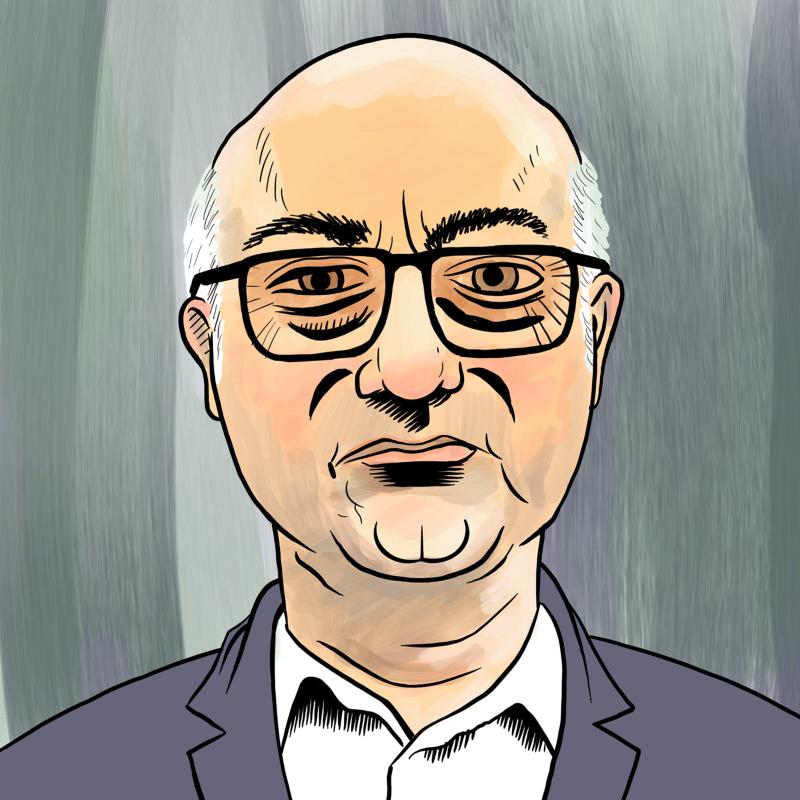
Rainey himself is no stranger to slow personal starts and rumbling frustrations that can accumulate over the years. For over 12 years, he unsuccessfully submitted his work for consideration for the Observer newspaper’s award for emerging cartoonists. He finally won in 2020. The long-hoped-for win spurred Rainey to leave his IT/administration job to work on his graphic novel Why Don’t You Love Me?, which was published by Montreal’s Drawn & Quarterly earlier this year.
The Tyee posed a few questions to Rainey about his work, as well as the curious times that we’re living through, all while gently skirting around the secret glory at the centre of the story. To find it, you’ll need to read the book. The interview has been lightly edited.
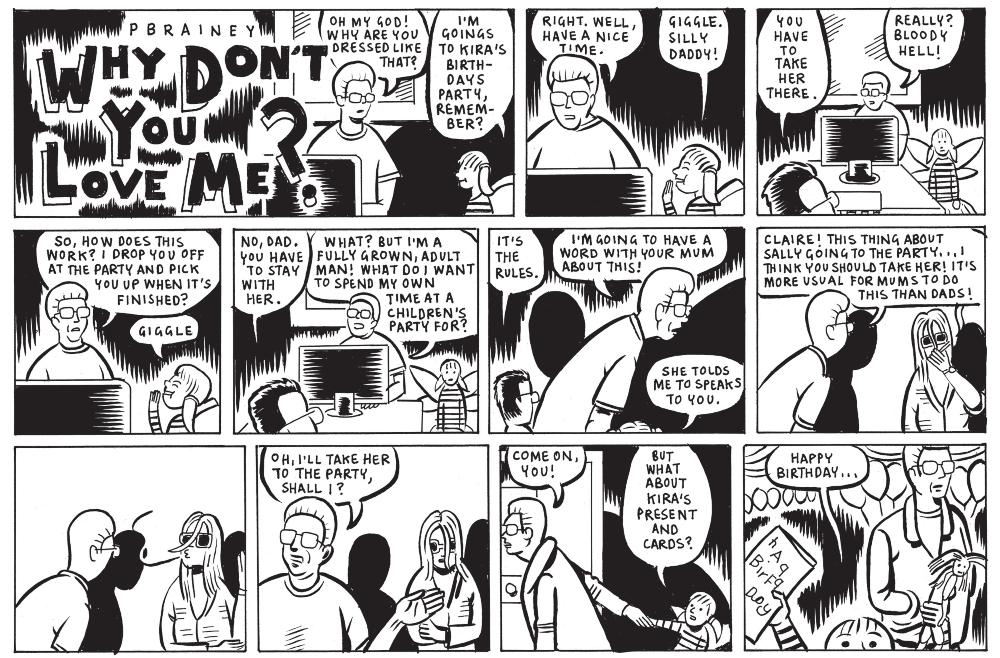
The Tyee: The mystery at the centre of the story takes a while to reveal itself, I almost don’t want to talk about it, as one wants readers to have their own individual experience with the story. Has this been something of a challenge, talking about the book, without talking about it too much?
Paul B. Rainey: Yes, definitely. I have a “pitch” which is “it’s a sitcom about a dysfunctional family who, at the end of the day, still don’t love each other,” which is inadequate. When I was drawing the book, I didn’t imagine I would be in a position where I would be having to answer the question “what’s it about?” better than I had prepared for.
There are echoes of the pandemic lockdowns, with the succession of days, one bleeding into another. Did the recent period impact how you chose to tell the story?
I began working on Why Don’t You Love Me? in 2015, way before the pandemic. I guess I had an innate understanding of what being trapped indoors most of the time is like. That’s the life of a graphic novelist for you!
Do you feel like the last few years have altered our sense of time or our understanding about how quickly and profoundly things can shift from the ordinary into the deeply strange and disconcerting?
Most of the book was finished before the lockdowns we experienced, although the pandemic did help with the final run of pages, about 20 or so. My approach with Why Don’t You Love Me? was to take the concept, which I resist explaining in interviews, and run with it to its logical conclusions.
The good thing about 2020 was it helped me to realize that my speculation was probably not that far off what might actually happen if these series of events were to happen.
The mixture of anxiety and mundanity that inform Claire and Mark’s story is so immediate, almost like a scent. In accessing the particular flavours of the times, did you draw upon any of your own experiences?
Perhaps. I like mundanity. I like trying to observe small things about behaviour and making something large and compelling out of them or contrasting them against a big idea. If I drew upon my own experiences for these elements, then it wasn’t consciously.
I think the house I drew that Claire and Mark live in together is claustrophobic and small and helped with setting the anxiety. That house is based on one I know. Like most homes in the U.K., it doesn’t take many people living in them before they start to feel a little mad.
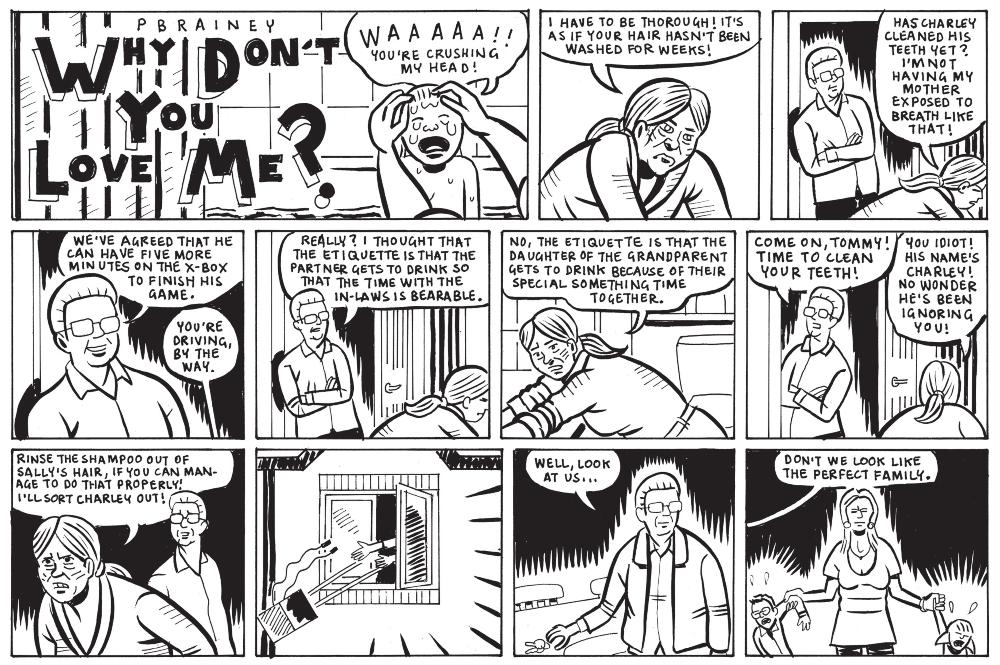
Can you talk about some of your influences, literary, cinematic and visual?
I read comics all of the time, so most comics, good and bad, have been an influence on my work. For Why Don’t You Love Me? I was observably thinking about Peanuts by Charles M. Schulz.
In reading author Neil Gaiman’s blurb for your book, his final sentence, 'To understand all is to forgive all,' leaps out. How has it been when other folks start to share their reactions and feelings about your book?
Originally, the strip was serialized in Aces Weekly, an online, subscription-only comic book. Then I posted the pages individually every Sunday morning to my social media. Initially, response was slow. But some people started to pick up on it after a while. Some sought out the previous episodes to catch up on (they were available online at the time, but I didn’t make them easy to find) whilst others got something from it despite having missed big chunks of it. All of which fascinated me.
The most amazing and often overwhelming reactions have been from those reading it as a collected whole. People often seem to be genuinely affected by it which, of course, I love to hear.
I grew extremely fond of Claire and Mark, so much so that I was quite sad when the book ended. Do you think about them still?
I thought I didn’t. That the story was over and so was my relationship with the characters. But I’ve been drawing lots of sketches of Claire and Mark to promote the book recently and I realized that I miss them. (I finished drawing Why Don’t You Love Me? two years ago). I find when I sketch them now, that I give them a little extra zip. It’s almost as if I want them to be happy. ![]()
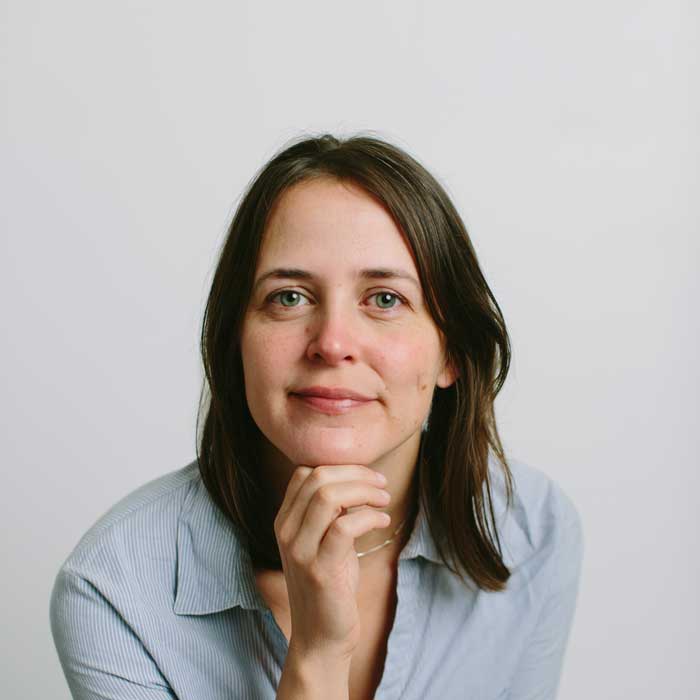



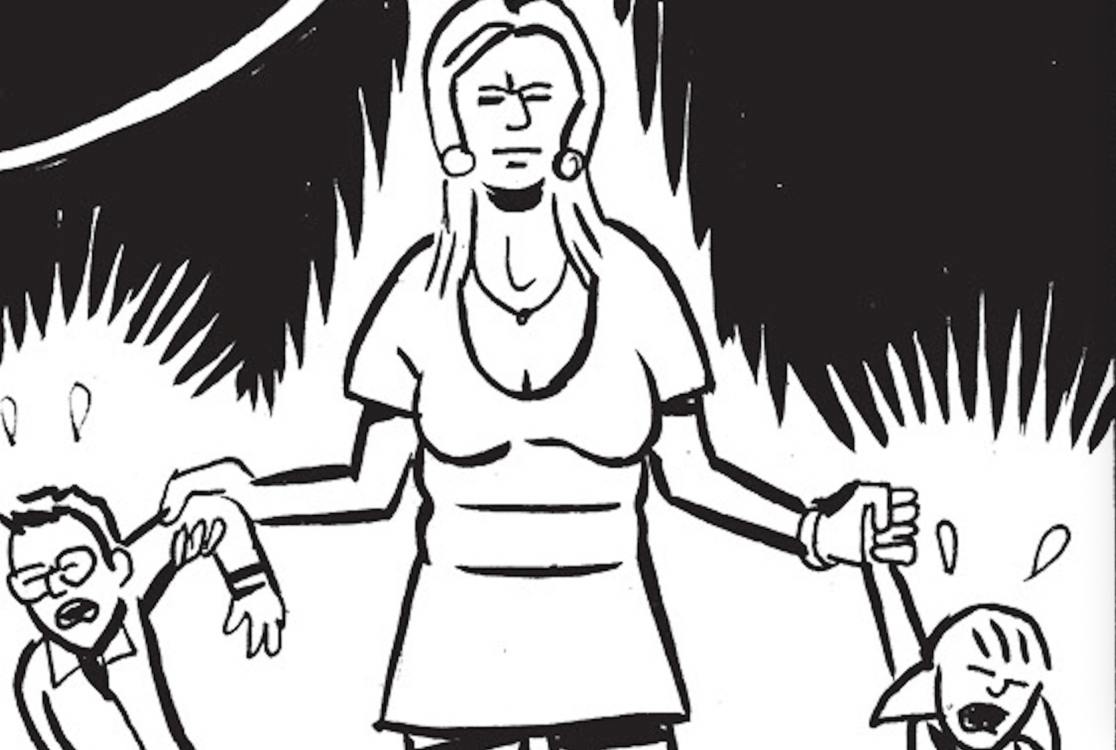










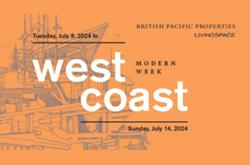

Tyee Commenting Guidelines
Comments that violate guidelines risk being deleted, and violations may result in a temporary or permanent user ban. Maintain the spirit of good conversation to stay in the discussion.
*Please note The Tyee is not a forum for spreading misinformation about COVID-19, denying its existence or minimizing its risk to public health.
Do:
Do not: